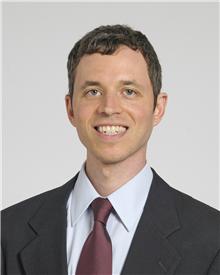11 Sep Elders Also Benefit When Young Adults Get Flu Vaccine
 MedicalResearch.com Interview with:
MedicalResearch.com Interview with:
Dr. Glen Taksler, PhD
Medicine Institute
Cleveland Clinic Main Campus
Medical Research: What is the background for this study? What are the main findings?
Dr. Taksler: Although young, healthy adults who develop influenza are usually able to recover, they may spread the flu to other people in the community who have a higher risk of hospitalization or other serious complications. These higher-risk people have a limited ability to protect themselves from influenza, because flu vaccines are less effective in the elderly and in people with weakened immune systems.
To better understand whether young, healthy adults could help the community-at-large by getting a flu vaccine, we looked at data on more than 3 million Medicare beneficiaries across 8 influenza seasons.
We found that the elderly had 21% lower odds of developing influenza if they lived in areas where more nonelderly adults (people aged 18-64 years old) got a flu vaccine.
Importantly, we found these benefits even in elderly adults who obtained an influenza vaccine, perhaps because flu vaccines are less effective in the elderly. This means that elderly adults who were proactive to try to prevent influenza still benefited from communitywide vaccination.
Medical Research: What should clinicians and patients take away from your report?
Dr. Taksler: Our study suggests that adults who have contact with the elderly should make a particular effort to receive an influenza vaccine. This includes both people who have elderly relatives in their households and people who have routine contact with the elderly.
Additionally, our findings may offer a way to help reframe perceptions of the flu vaccine. Many people have a negative view of the flu vaccine, focusing on inconvenience and potential side effects. Our study offers a more positive context, that getting a flu vaccine seems to help other people in the community.
Medical Research: What recommendations do you have for future research as a result of this study?
Dr. Taksler: Better understanding of clinical implications—do our results increase people’s interest in getting a flu vaccine?—would be useful. Researchers might also look at laboratory-confirmed influenza (whereas we were limited to diagnoses that were billed to Medicare) or construct a carefully designed randomized controlled trial.
Citation:
Glen B. Taksler, Michael B. Rothberg, and David M. Cutler. Association of Influenza Vaccination Coverage in Younger Adults With Influenza-Related Illness in the Elderly. Clinical Infectious Diseases, September 2015 DOI: 1093/cid/civ630
[wysija_form id=”5″]
MedicalResearch.com is not a forum for the exchange of personal medical information, advice or the promotion of self-destructive behavior (e.g., eating disorders, suicide). While you may freely discuss your troubles, you should not look to the Website for information or advice on such topics. Instead, we recommend that you talk in person with a trusted medical professional.
The information on MedicalResearch.com is provided for educational purposes only, and is in no way intended to diagnose, cure, or treat any medical or other condition. Always seek the advice of your physician or other qualified health and ask your doctor any questions you may have regarding a medical condition. In addition to all other limitations and disclaimers in this agreement, service provider and its third party providers disclaim any liability or loss in connection with the content provided on this website.
Dr. Glen Taksler, PhD (2015). Elders Also Benefit When Young Adults Get Flu Vaccine
Last Updated on September 11, 2015 by Marie Benz MD FAAD
